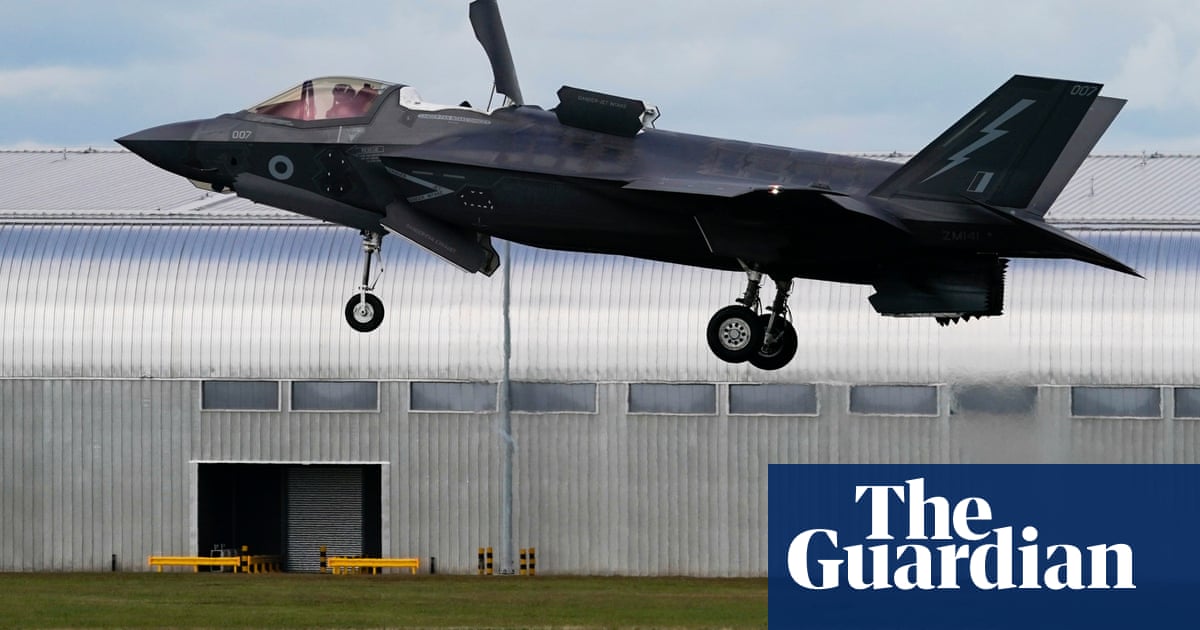No evidence has been seen that a genocide is occurring in Gaza or that women and children were targeted by the IDF, UK government lawyers have claimed, as a high court case opened into the handling of arms exports controls toIsrael.
They also suggested there was no obligation placed on the UK to make other states comply with international humanitarian law but only to ensure that no breach occured within its jurisdiction.
The government is seeking to defend itself in a judicial review brought over allegations that it acted unlawfully in continuing to sell F-35 parts and components to a global pool, even though some of those components might be used by Israel inGazain a way that the government regards as a breach of international law.
Much of the case will turn on the extent to which international law places obligations in domestic law.
At the start of a four-day hearing at the high court in London, Raza Husain KC, for the Palestinian rights organisation Al-Haq, said: “This claim is being heard against the backdrop of human calamity unfolding in Gaza, the extremity of which is difficult to convey in words.”
In September the Labour government suspended most relevant arms export licences for use in Israel but gave a carve-out to the F-35 programme, saying international peace and security required that it was not disrupted.
The battle to prevent Russia occupying Ukraine could have been affected in weeks without the carve-out as the F-35 is a central pillar of Nato, the government told the court.
It said the only practical way to prevent UK-manufactured F-35 components reaching Israel was to suspend all UK exports into the F-35 programme, a step that would incur serious risks to international peace and security.
“The likelihood of UK-manufactured components being used in existing Israeli planes is very small, while the IDF is one of the most significant and well-equipped militaries in the world and therefore the impact of suspending F-35 components on operations in Gaza is likely to be minimal,” the government lawyers said.
The judicial review has been mounted by Al-Haq, the Global Legal Action Network, and has been joined by Amnesty, Oxfam and Human Rights Watch.
The hearing has taken nearly a year to reach court, as the government argued its decisions were not justiciable.
Lawyers for Al-Haq argued the F-35 carve-out was not “consistent with the UK’s domestic and international legal obligations”, including the Geneva conventions, Genocide Convention and Arms Control Treaty.
But the government’s lawyers argued that UK courts cannot second-guess government decisions in matters of foreign policy.
It also cited an annexe sent to ministers in August last year that concluded: “a finding that Israel is not committed to comply with international humanitarian law does not necessarily indicate that it is harbouring genocidal intent.
“There have been a range of positive statements and some negative statements from specific actors; however, their remarks are not assessed to be representative of the Israeli government overall.
“No evidence has been seen that Israel is deliberately targeting civilian women or children. There is also evidence of Israel making efforts to limit incidental harm to civilians.”
Government lawyers also stressed that the international court of justice last year had not found there was a plausible risk of a genocide occurring.
The government argues no violation of the duty to prevent such a genocide “can occur unless and until there is actually a genocide”.
Yet Husain told the court that “on the first of this month, at least 1.9 million people, or about 90% of the population, have been displaced on 10 times or more.
“On 7 May the UN Office for the Coordination of Humanitarian Affairs reported that every single one of Gaza hospitals has been damaged or destroyed and, as of this month, only half were partially functional.
“Official reporting from the ministry of health, cited by UN agencies, indicated that between 23 October and 25 April over 50,000 Palestinians to be killed, including at least 15,000 children and a further 214,000 injured.”
He said: “These acts of annihilation have been accompanied by persistent genocidal, dehumanising and even celebratory statements made at all levels of the Israeli military and political structure, including such figures, I regret to say, as the prime minister, president, minister of defence, minister of national security and minister of finance.”
The hearing before Lord Justice Males and Mrs Justice Steyn is due to conclude on Friday, and a decision is expected in writing at a later date.
